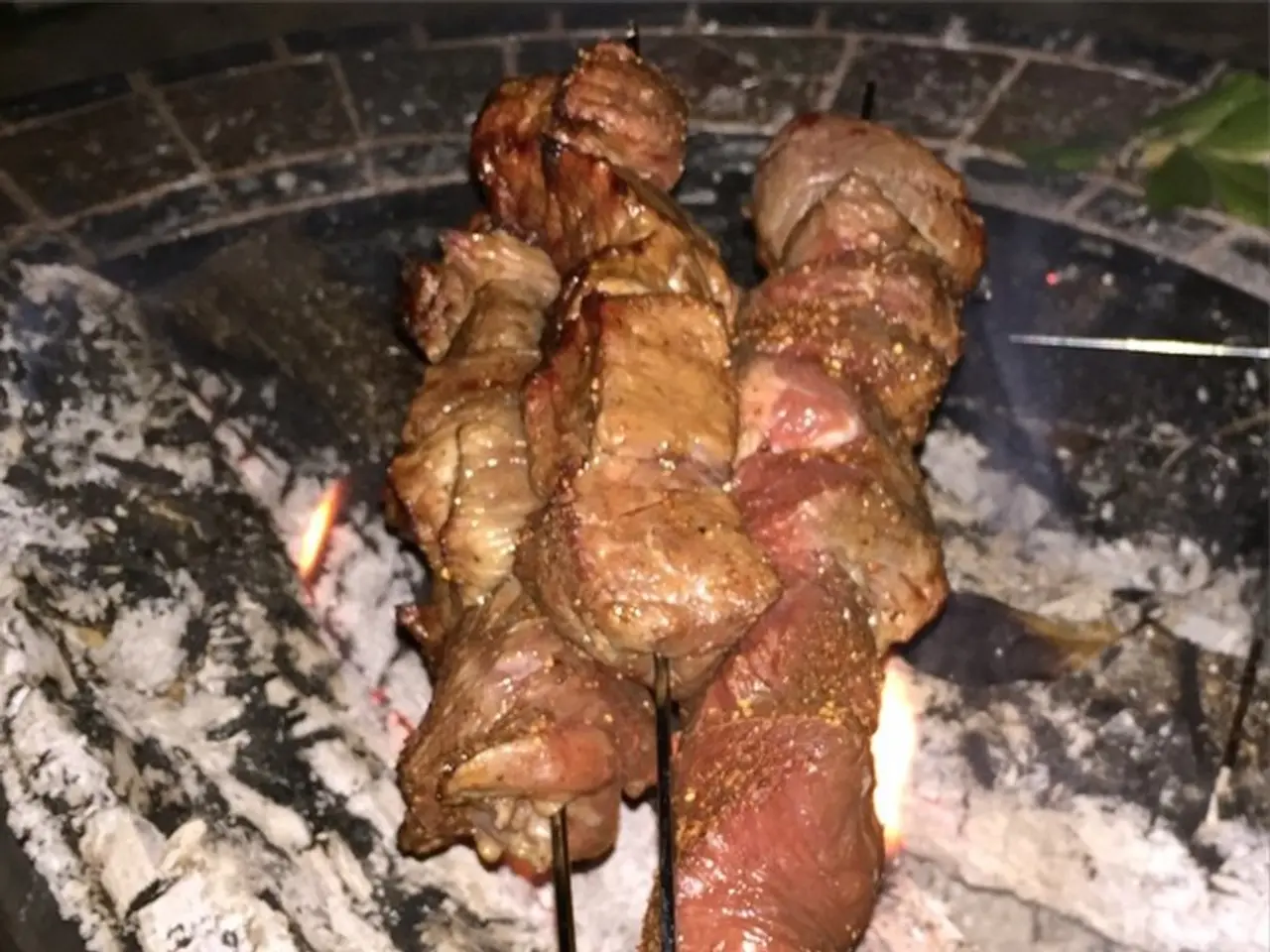Mexican Eatery Transforming Waste into Stunning Art Installations: Baldío's Unique Approach
In the heart of Mexico City, Baldío restaurant stands as a beacon of ecological activism, challenging urbanization and championing sustainability in the culinary world. Founded by the Usobiaga brothers and chef Doug McMaster, Baldío's location in Xochimilco is a political statement, an act of resistance against urbanization that threatens this natural and historical heritage.
The restaurant's commitment to sustainability extends beyond its location. Lime skin at Baldío is used to make powder for ceviches, and fish guts are repurposed to make salsas with koji, a traditional Japanese fermentation method. This waste-free approach is a testament to Baldío's dedication to eliminating food waste, a pressing issue that sees 20% of the world's food lost or wasted, according to the UN.
Everything at Baldío, including ingredients, peels, and leftovers, is repurposed. The inspiration for this technical model comes from the waste-free pioneer, Silo, founded by Doug McMaster in London in 2014. This innovative approach has earned Baldío a green Michelin star in 2024 for its waste-free model.
Noy Coquis Salcedo, an older farmer, has been inspired by Baldío to see a future in the land again. Baldío cultivates more than 50% of its ingredients in Xochimilco, using agroforestry techniques, its own compost, and biofiltered water irrigation. This local sourcing not only reduces the carbon footprint but also supports the local community.
Food waste in landfills generates methane, a gas 25 times more potent than CO2. By eliminating waste, Baldío is making a significant contribution to combating climate change. The restaurant's vision is multiplied in diverse approaches, setting a precedent for sustainable and regenerative gastronomy.
Baldío combines haute cuisine with regenerative agriculture and ancestral techniques. The restaurant's dishes are a celebration of the land and its bounty, showcasing the flavours of Xochimilco in innovative and delicious ways. The most important contribution of Baldío might not be its waste-free kitchen or its connection to the land, but the idea that eating can also be an act of justice.
Several restaurants worldwide are leading a new wave of eco-activism in gastronomy. Notable examples include Enclos and Sons & Daughters in California, Maido in Lima, Peru, Asador Etxebarri in Spain, Quintonil in Mexico, The Alchemist in Denmark, and Potong in Bangkok. Each of these establishments is recognized for their sustainability efforts and advancements in sustainable gastronomy.
Baldío is part of this global movement where restaurants integrate eco-activism by rethinking their entire food systems—embracing localism, reducing waste, and fostering regeneration rather than exploitation—to rewrite the future of gastronomy. These establishments are setting an example for the industry, demonstrating that sustainability and culinary excellence can go hand in hand.
- In the realm of environmental science, Baldío restaurant's sustainable practices in Mexico City are a testament to the amalgamation of science and climate-change action, setting a precedent for the culinary world.
- Beyond its commitment to sustainability, Baldío's innovative approach to cooking, such as repurposing lime skin and fish guts, is a significant contribution to the food-and-drink industry's push towards sustainable living.
- By adopting sustainable living practices and healthy-cooking methods, Baldío's lifestyle choices extend beyond the kitchen, influencing home-and-garden maintenance, like their use of agroforestry techniques and compost.
- The restaurant's reduction of food waste not only supports the environmental science sector in minimizing greenhouse gas emissions but also contributes to the health of the planet by lowering methane production in landfills, thus combating climate-change.
- The global movement of eco-activism in gastronomy, spearheaded by establishments like Baldío, is intensifying, with notable restaurants like Enclos, Sons & Daughters, Maido, Asador Etxebarri, Quintonil, The Alchemist, and Potong adopting similar principles, demonstrating that culinary excellence and sustainability can harmoniously coexist.




